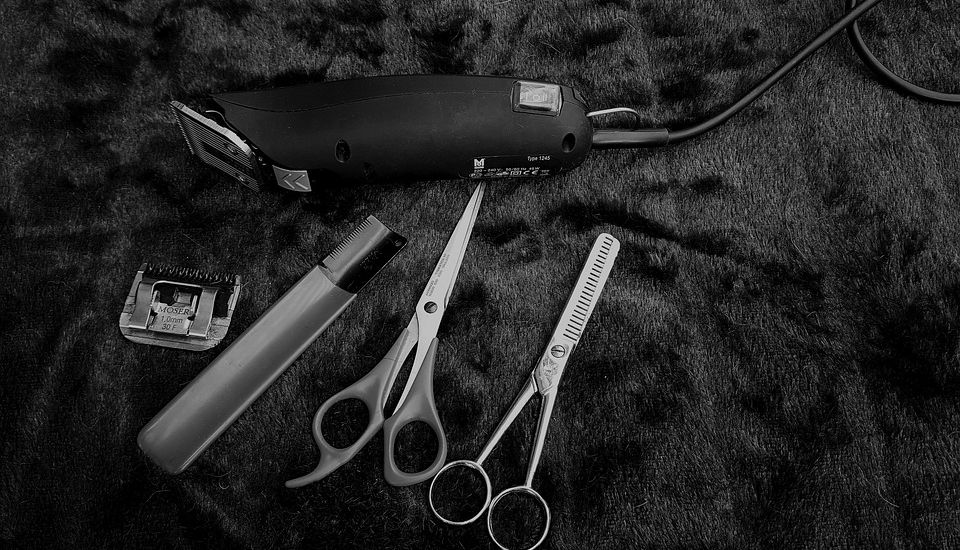

A “highly respected hair stylist” - who claimed that workplace teasing over allegations from an anonymous caller that she had sent photos of herself to another woman's husband was one of the reasons behind her resignation - has had her compensation claim rejected by the Employment Tribunal.
In a two-day hearing last month, former Jason’s Barber Shop worker Maria Manuela Leite argued that she had been constructively unfairly dismissed due to the behaviour of her employer and colleagues, was not provided with pay slips and that her contract was missing key information.
The Tribunal rejected her dismissal claims, but made an award of £1,760 after finding that, despite nine years of employment, she never received an accurate written statement of her employment terms.
During the hearing, Jason’s Limited argued through Advocate Brown that Ms Leite’s resignation was due to personal reasons and her own decision to start a new job, but she disputed this, arguing that it was largely down to two trigger events.
Despite enjoying a generally “good working relationship” with her colleagues, she said things began to deteriorate on 30 September last year following an anonymous phone call to the salon in which Ms Leite was accused of sending photographs of herself to the caller’s husband, which left her “tearful” and “shaken.”
Pictured: Jason's Barber Shop in New Street. (Google Maps)
She claimed that her boss, Mr Fitzpatrick, and a male colleague had spoken of this loudly in front of customers, which left her feeling embarrassed. She then said that she tried to deny the photo allegation, but was told by her colleague, “cala-te”, meaning “shut up.” The pair denied this, although her colleague admitted to jokingly asking whether the call was “about a bad haircut.”
Nearly a month after the call, she sent a grievance letter containing criticism of how the call had been dealt with, as well as a further allegation that a male colleague had taken photos of her at work and shown them to customers. This was refuted.
Instead, her colleague said that she had sent him “provocative selfies”, which Mr Fitzpatrick instructed him to delete immediately. The Tribunal was shown one such photo. Ms Leite admitted that she had sent the photos, but denied any lewd intent. She said she had been wearing a summer dress and that “lots of people take selfies in everyday life.”
Ms Leite said that she was disappointed at how her concerns were handled. Her employer accepted that he had shouted, “what the hell is this?” when receiving the letter, but said that all parties had agreed to “move on” after discussion. Ms Leite felt that she was never given an adequate opportunity to state her case, however.
But the “last straw” for her came in November after a month in which Ms Leite said she was “overworked and suffering from poor mental health following the ‘Anonymous Call’.”
When taking payment from a customer, she accidentally keyed in a colleague’s code instead of her own. To correct this, she suggested that her colleague, Miss Legniece, “offset the mistake” by using her code. But Miss Legniece refused because it was not the correct procedure to follow.
This was said to have “angered” Ms Leite, as she had been working there for over nine years, while her colleague had only been there for a few months. “Miss Legniece should therefore have listened to the Claimant and that her refusal to follow her instruction was unreasonable. She alleged that Miss Legniece "started shouting at me and was very rude I had to ask her to stop shouting.”,” the Tribunal judgement explained.
But Miss Legniece said that it was in fact Ms Leite who started shouting in front of a customer, which progressed to “screaming” once the customer had left.
Two days later, Ms Leite was signed off work for mental health reasons. Six days after that, she posted a resignation letter, arguing that this was due to the barber shop’s failure to deal with her grievances.
Presided by Chairman Hilary Griffin, the Tribunal did accept that her boss breached his “duty of mutual trust and confidence” during the grievance procedure, but felt that this was a “one-off” – especially as Ms Leite herself had said that “up until the anonymous call, Mr Fitzpatrick was a good employer."
The Panel was therefore not convinced that Ms Leite had been constructively unfairly dismissed due to the anonymous call and till incidents. “Being upset by a work colleague's behaviour does not automatically amount to a breach of the implied duty of mutual trust and confidence,” Ms Griffin commented.
Despite the ruling, the claimant still received some compensation following the claim. Ms Leite was awarded £1,760 after it emerged during the hearing that Mr Fitzpatrick had failed to provide Ms Leite with a contract including the start date of her employment.
The Chairman concluded: “This was a prolonged oversight on the part of the Respondent. The Employment (Jersey) Law is clear in its requirement that a copy of the statement of terms are provided to an employee within four weeks of the commencement of employment.
“In view of the above, I concluded that the Respondent should pay the maximum amount of compensation permitted under the Employment (Jersey) Law. The Respondent shall therefore pay to the Claimant four weeks’ pay as compensation for failing to provide her with a written statement of terms and for failing to include the Claimant’s start date in the Contract.”
Comments
Comments on this story express the views of the commentator only, not Bailiwick Publishing. We are unable to guarantee the accuracy of any of those comments.